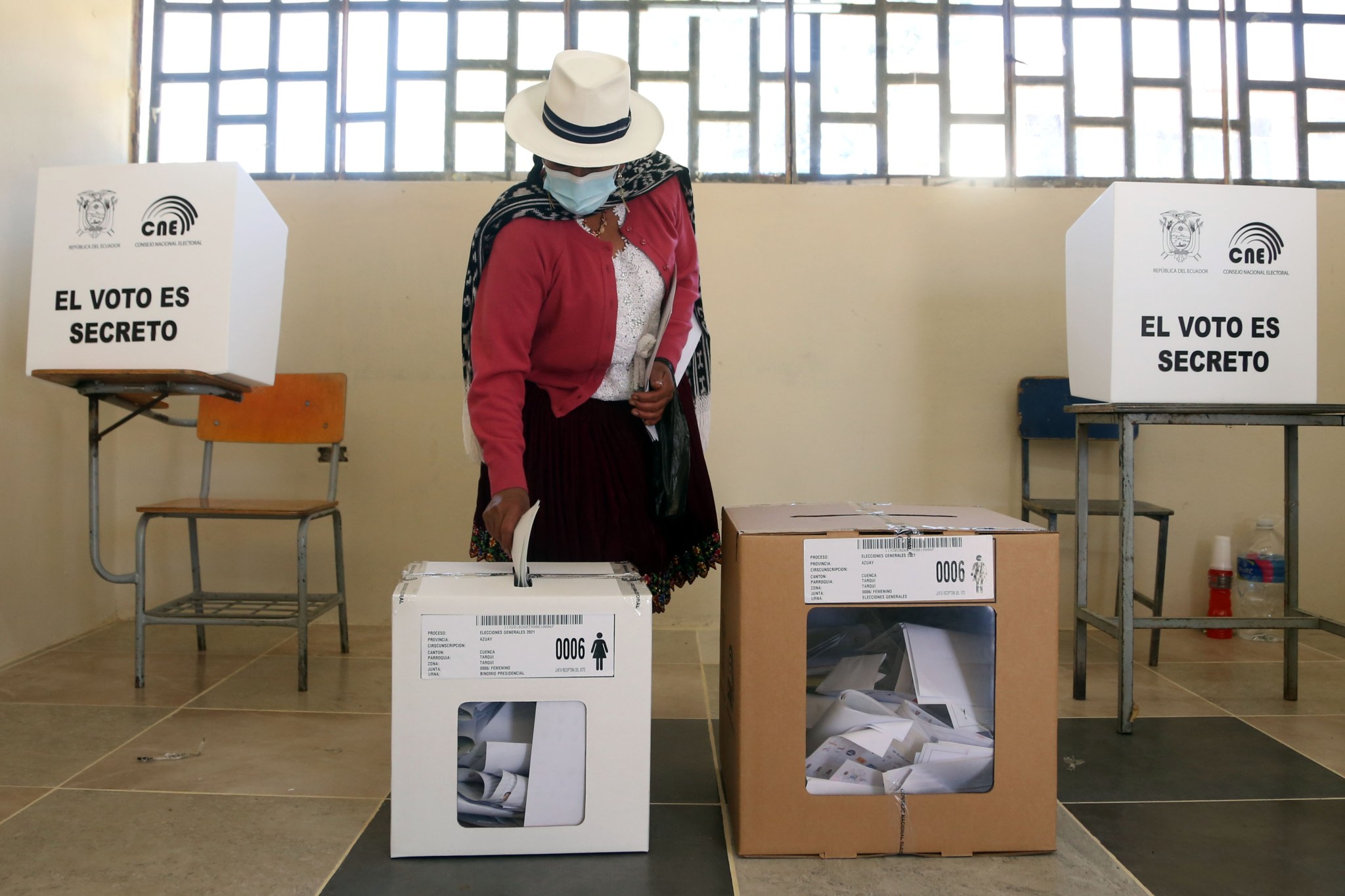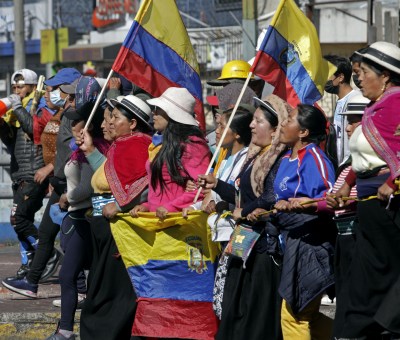
Artificial Intelligence and Our Democracies: A Loo…
Although artificial intelligence (AI) has been at play in our everyday lives for years, the recent advancements in generative AI…
Since 2017, Ecuadorians have redoubled efforts to strengthen their democratic system.
To support these efforts, IRI in Ecuador works with civil society, media, academia, the private sector, and government partners to focus on democratic governance, transparency, and accountability at the national and local levels.

Through its work with local governments and, since 2017, with the National Assembly, IRI encourages more transparent, inclusive, participatory, and citizen-responsive governance. The current program, Supporting More Inclusive and Representative Legislative Processes, works to establish systematic processes for inclusion of marginalized populations in the legislative process through collaboration of legislative technical units, members, and staff with civil society organizations (CSOs). In Quito, Guayaquil, Cuenca, Manta, Pastaza (Puyo), and other municipalities, IRI promotes citizen participation through citizen-led policy agenda setting.
To support a free press and strengthen its capacity to service as effective stakeholders, IRI collaborates with local and independent media to promote more effective electoral, political, and investigative reporting at both the national and local level. IRI’s regional program, Building Investigative Expertise and Connections for Transnational Accountability, provides capacity-building support for journalists to investigate corruption and to connect with other investigative journalists across the region.
Moreover, at the beginning of the COVID-19 pandemic, IRI supported its partners in the National Assembly to work remotely using digital tools and facilitated best practices exchanges on technology for democracy among regional legislative partners. In a time of an increasingly digitalized world, it is important to help prevent technology from being misused through programming that helps media, civil society, and government programs mitigate and counter disinformation spread through digital channels.
Civil society partners are vital to IRI’s programs in Ecuador, including more established CSOs working on national level policy advocacy and accountability efforts, as well as through building the capacity of emerging and grassroots CSOs across the country. In the 2021 elections, IRI worked with a broad spectrum of CSOs and the National Electoral Council to support transparent elections and improved voter communication, with a special focus on supporting more informed first-time young voters.
IRI Ecuador works in collaboration with the Institute’s Women’s Democracy Network to strengthen the capacity and opportunities for women to participate actively in political processes. This includes the current program, Advancing Women’s Political Leadership, supporting women legislators and male allies to mainstream gender issues in the legislative process. IRI believes that empowering women to take a more active role in the political process elevates political discourse through a more equitable representative process and a more diverse and inclusive political space. IRI will continue to support partners and the Ecuadorian people in their efforts to improve their representative democracy, target and battle corruptive practices, and strengthen the role of a free and independent press that serves as an effective and independent stakeholder in the political process.

Although artificial intelligence (AI) has been at play in our everyday lives for years, the recent advancements in generative AI…
“The people of Ecuador deserve the right to participate in a free and fair election that will allow voters to…

The presence of 14 nationalities and 18 Indigenous Peoples in Ecuador makes it a multicultural and multiethnic country. This creates…

Guillermo Lasso won Ecuador’s presidency in April 2021 promising to reactivate the nation’s economy through lower taxes, less regulation, and…
